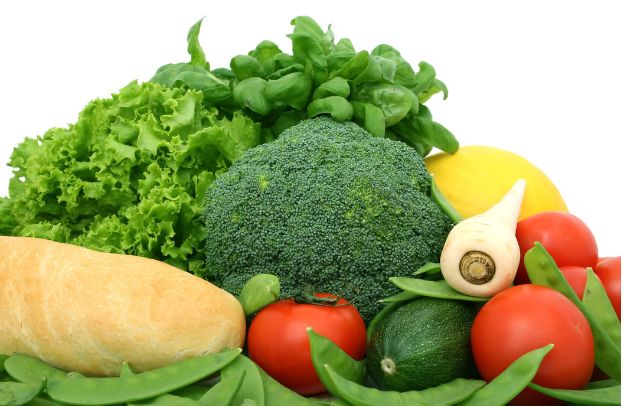Want to understand good nutritional strategies for elderly people? Then you are in the right place. As the golden years unfold, the significance of a well-rounded and culturally attuned nutritional strategy remains increasingly evident for elderly individuals. In African nutrition and wellness, understanding and addressing the unique needs of the elderly is paramount.
This article aims to explore the key nutritional challenges faced by elderly individuals in Africa and present a comprehensive strategy that embraces the richness of African cuisine and cultural diversity.
Key Nutritional Challenges for the Elderly in Africa
Elderly individuals in Africa confront a multitude of health challenges that span the spectrum from chronic diseases to nutritional deficiencies. The elevated occurrence of ailments such as diabetes, cardiovascular problems, and osteoporosis emphasizes the necessity for a focused nutritional strategy tailored to address these specific health concerns.
In addition to health issues, factors like restricted access to healthcare services and socioeconomic disparities contribute to the intricate health landscape for the elderly in Africa.
These challenges amplify the urgency for comprehensive initiatives that not only target specific health conditions but also address the broader systemic issues affecting the overall well-being of the elderly population on the continent.
Traditional African Foods and Their Nutritional Benefits
A treasure trove of nutrient-rich traditional foods exists within African cuisine, providing a foundation for a tailored nutritional strategy.
From protein-packed grains like sorghum and millet to vitamin-rich leafy greens such as morogo and eru, traditional African foods offer a wealth of essential nutrients. The cultural significance of these foods amplifies their impact on overall well-being. Here are three key benefits of food nutrients:
Promoting overall health and well-being:
Food nutrients play a crucial role in supporting the body’s various functions and maintaining overall health. Essential nutrients, such as vitamins, minerals, proteins, carbohydrates, and fats, contribute to the proper functioning of organs, tissues, and systems.
They are involved in processes like energy production, immune function, and cell repair, helping to keep the body in optimal condition.
Disease prevention and immune support:
Certain nutrients have antioxidant properties and contribute to a strong immune system, helping the body defend itself against infections and illnesses. For example, vitamins C and E, zinc, and selenium act as antioxidants, neutralizing harmful free radicals that can damage cells and contribute to the development of chronic diseases.
A well-balanced diet rich in essential nutrients can therefore contribute to disease prevention and better immune function.
Energy production and maintenance of body weight:
Nutrients, especially carbohydrates, fats, and proteins, are primary sources of energy for the body. Carbohydrates provide a quick and easily accessible source of energy, while fats serve as a more concentrated and long-lasting energy reserve. Proteins play a crucial role in building and repairing tissues.
The balance of these nutrients in the diet is essential for maintaining a healthy body weight and supporting the energy needs of various physiological processes, including physical activity and metabolic functions.
Cultural Considerations in Nutritional Strategies
Cultural considerations hold significant weight in the formulation of nutritional strategies, particularly when addressing the dietary needs of the elderly in Africa.
The region’s cultural fabric is woven with communal meals and social gatherings that transcend mere rituals, functioning as indispensable elements in maintaining nutritional well-being. These communal practices foster a sense of unity and belonging while concurrently influencing dietary preferences and habits.
To learn more, you can consider checking out the following publication: Addressing The Nutritional Needs Of Older People In Emergency Situations In Africa: Ideas For Action.
In light of this, any attempt to implement nutritional interventions must be rooted in a deep understanding and appreciation of these cultural dynamics.
Moreover, recognizing and respecting traditional beliefs surrounding food is paramount for the success of dietary interventions. These beliefs are deeply ingrained in the fabric of society, often influencing not only the types of food consumed but also how meals are prepared and shared.
A successful nutritional strategy for the elderly in Africa must navigate these cultural nuances with sensitivity, ensuring that it not only addresses nutritional requirements but also seamlessly aligns with the cherished values and practices of the elderly population.
By embracing cultural considerations, nutritional interventions can become more effective and sustainable, promoting overall well-being within the context of the region’s rich cultural tapestry.
Practical Tips for Implementing a Nutritional Strategy
Consider implementing practical tips for a nutritional strategy tailored to the elderly in Africa. This can include guidelines for seasonal meal planning and modifications to traditional recipes for enhanced nutritional value.
It’s also important to set up easy-to-follow tips for maintaining a balanced diet to empower individuals and caregivers with actionable steps.
Here are three key steps for a follow-up to the practical tips for implementing a nutritional strategy for the elderly in Africa:
Community Workshops and Education Programs:
Conduct community workshops to disseminate nutritional information tailored to the elderly population in Africa.
Collaborate with local health organizations and community leaders to organize educational programs on seasonal meal planning, recipe modifications, and the importance of a balanced diet for elderly individuals.
Provide hands-on demonstrations and cooking classes to empower caregivers and individuals with practical skills for implementing the nutritional strategy in their daily lives.
Development of Resource Materials:
Create easily accessible resource materials such as pamphlets, posters, and digital content that highlight key nutritional guidelines for the elderly.
Translate materials into local languages to ensure broader reach and understanding within diverse communities.
Distribute these materials through community centers, healthcare facilities, and local markets to reinforce the importance of implementing the nutritional strategy.
Establishment of Support Networks:
Form support networks or community groups focused on elderly nutrition, where individuals and caregivers can share experiences, challenges, and success stories.
Encourage the formation of local support groups facilitated by healthcare professionals or nutrition experts to provide ongoing guidance and motivation.
Leverage technology, such as social media platforms or community forums, to connect individuals across different regions for continuous support and information exchange.
By implementing these steps, you can foster a more comprehensive and sustainable approach to improving the nutritional well-being of the elderly in Africa, turning theoretical knowledge into practical and impactful actions.
The Role of Physical Activity and Lifestyle
A comprehensive approach to overall well-being extends beyond dietary considerations, encompassing the pivotal elements of physical activity and lifestyle choices.
Emphasizing the significance of integrating regular exercise into daily routines, this section underscores the multifaceted aspects that contribute to the overall health of the elderly. It goes beyond mere theoretical insights, providing practical suggestions to encourage and facilitate active participation in the community.
By intertwining the importance of maintaining a physically active lifestyle with choices that promote mental and social well-being, this holistic perspective aims to empower the elderly to lead fulfilling lives that prioritize both physical health and a sense of community engagement.
Conclusion
In conclusion, the nutritional strategy outlined in this article serves as a compass for elderly individuals navigating the intricate landscape of African nutrition and wellness.
By embracing the richness of traditional foods, respecting cultural values, and incorporating practical tips into daily life, the elderly can embark on a journey of enhanced health, vitality, and fulfillment.
This article encourages readers to explore and implement these strategies, fostering a harmonious blend of nutrition, culture, and well-being in the later stages of life.








Thanks I have just been looking for information about this subject for a long time and yours is the best Ive discovered till now However what in regards to the bottom line Are you certain in regards to the supply
Hi Neat post There is a problem along with your website in internet explorer would test this IE still is the market chief and a good section of other folks will pass over your magnificent writing due to this problem
Just wish to say your article is as surprising The clearness in your post is just cool and i could assume youre an expert on this subject Fine with your permission allow me to grab your RSS feed to keep updated with forthcoming post Thanks a million and please keep up the enjoyable work
Its like you read my mind You appear to know a lot about this like you wrote the book in it or something I think that you could do with some pics to drive the message home a little bit but instead of that this is fantastic blog An excellent read I will certainly be back
Your article helped me a lot, is there any more related content? Thanks!